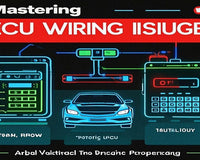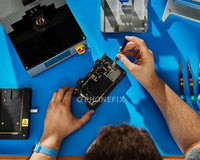
ECU tuning is a process that involves modifying an engine ECU chip to alter the way in which a car’s engine operates. ECU chip tuning can optimize performance from the car’s engine, maximizing horsepower, torque and overall fuel efficiency.
How ECU Tuning Improve Your Car’s Performance?

Improved performance: ECU tuning can help you get the most out of your car. By making a few adjustments to your car’s engine management system, which can help to improve its performance, giving you more power and better acceleration.
Better fuel economy: By making a few changes to how your engine runs, which can help it run more efficiently, using less fuel in the process.
Tailored to your needs: ECU chip tuning can be tailored to your specific requirements. Whether you want more power, better fuel economy, or both, that can help you to achieve your goals.
Improved safety: ECU tuning can also help to enhance the security of your car. By making a few changes to your car’s engine management system with ECU programmer, that can help to prevent engine knock and other potential problems. This can help to keep your vehicle running smoothly and safely.

However, ECU tuning can potentially damage an engine if not done correctly.
Potential for Increased Wear: Tuning can lead to increased wear on engine components. For instance, aggressive tunes may push the engine beyond its designed limits, leading to premature wear and potential failure of parts like injectors and turbochargers.
Engine Knock and Damage: Improper tuning can cause engine knocking, which occurs when fuel burns unevenly in the cylinder. This condition can lead to significant internal damage over time if not addressed. A well-executed tune should mitigate this risk by ensuring proper air-fuel mixtures and ignition timing adjustments.
Impact on Reliability: While some tuners argue that a proper tune can enhance reliability by optimizing performance and reducing operating temperatures, others caution that any modification increases the risk of failure. For example, a poorly executed remap might lead to higher operating temperatures and stress on components, ultimately shortening the engine's lifespan.
Warranty Considerations: It's important to note that ECU tuning can void manufacturer warranties, particularly if it leads to engine damage. Many manufacturers will not cover repairs if they determine that a tune contributed to a failure.

While ECU tuning has the potential to enhance performance and efficiency, it also carries risks of increased wear and potential damage if not done correctly. However, when performed by an experienced tuner and within the engine's limits, ECU tuning can enhance performance without causing harm. It's crucial to ensure that the tuning matches the car's capabilities and is done with precision to avoid any negative impact on the engine's lifespan.










